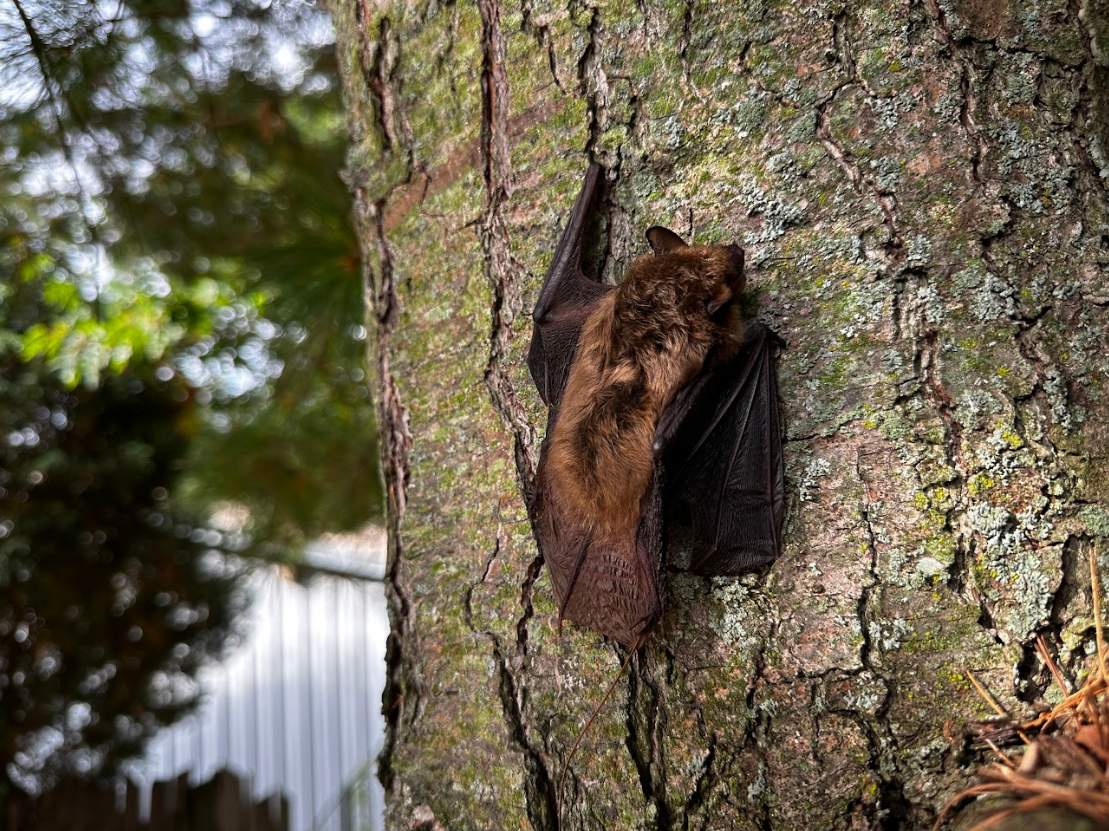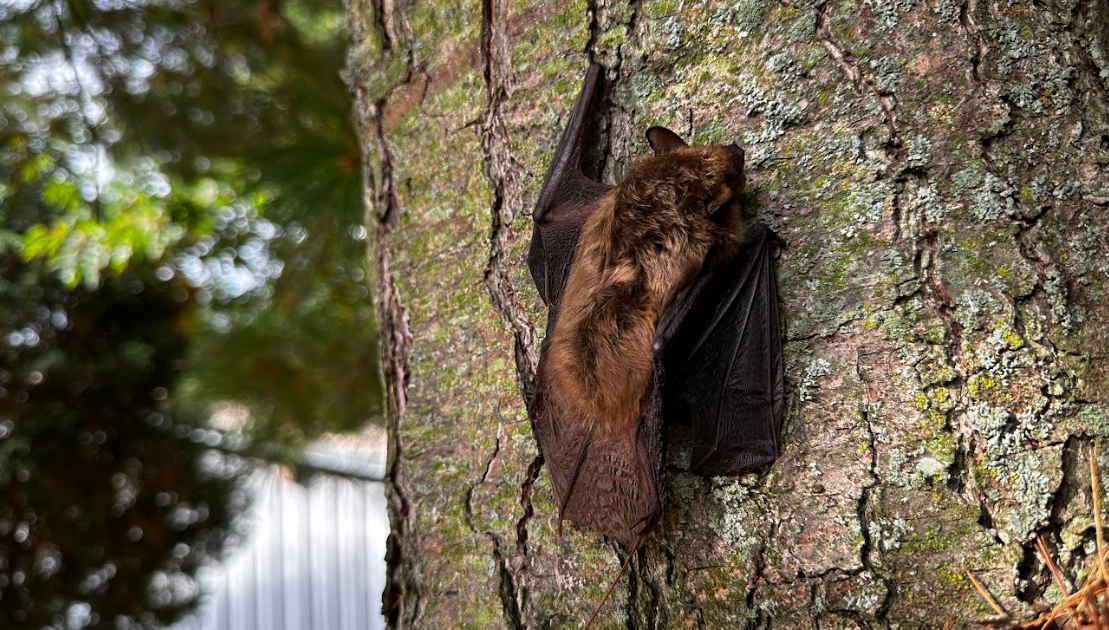If you live in Durham and are dealing with a bat infestation, you might be wondering just how dangerous they can be. You may have heard a lot of myths and misconceptions about these furry fliers, making it hard to separate fact from fiction. While it’s true that bats can carry diseases and cause property damage, they are a vital part of most ecosystems. These animals eat insects that can cause crop damage and spread diseases like West Nile virus and malaria. However, if they have taken up residence in your home or business, their droppings and urine can pose a health risk to humans.
So, the question remains: are bats harmful? The answer isn’t a simple yes or no. In this blog article, our Skedaddle experts explore the facts about bats and their potential dangers, as well as how we safely and humanely perform bat removal in Durham.
Dispelling Myths: Are They Dangerous?
One common misconception is that all bats carry rabies. Indeed, less than 1% are infected with the disease, according to the U.S. Center for Disease Control and Prevention. However, they are significant transmitters of rabies in the United States, so the concern is not unfounded. While occasional contact with them is a normal part of life for many Durham residents, prolonged and regular contact, especially within your living quarters, needs addressing.
Note: Due to the relatively small risk but serious consequences of rabies, it’s recommended to seek medical attention immediately if you believe you were exposed and could potentially have been bitten.
Property Impact
Aside from health risks, they can also impact your residence or commercial property. They often roost in large colonies, and their guano (droppings), can accumulate rapidly in these areas. Aside from the unpleasant smell and potential health hazards from pathogens in the guano, the weight of accumulated droppings can even cause structural damage to your property.
Moreover, bats can unfortunately attract other unwanted wildlife, creating a mess and causing additional property damage. This is why Skedaddle’s comprehensive removal strategy also includes cleaning and decontaminating affected areas, as well as securing the site against future infestations.
Privacy Concerns
Another reason bats might be worrisome is the unwanted invasion of privacy. They are nocturnal animals and their noises can be quite disruptive, especially at night when we are trying to sleep. Moreover, sightings can be scary, causing unease or fear which is the last thing we want in our homes.
There are some risks involved with bats. However, most can be mitigated with professional help. It’s best to appreciate these fascinating animals from a distance, in their natural habitat, and let the trained professionals at Skedaddle effectively manage removal if they become a problem in personal spaces.
Recognizing the Risks
When discussing the health risks associated with bats, the primary concerns pertain to disease transmission and the secondary to indirect threats through excrement, known as guano.
Diseases Spread by Bats
Bats are known carriers of several diseases that can affect humans. Most notably, these include rabies and histoplasmosis.
- Rabies: Rabies is a viral disease that usually spreads through the bite of an infected animal. As mentioned previously, less than 1% of bats carry this disease; however, if bitten by a rabid one, the risk of transmission is high. Rabies in humans and pets can be fatal if not treated immediately.
- Histoplasmosis: This is a lung disease caused by the inhalation of the spores of a fungus (Histoplasma capsulatum) found in guano. Symptoms can range from mild to severe and may include fever, cough, and fatigue.
If you find one in your living space and are unsure whether you have been exposed, you must contact health professionals immediately and arrange for the animal to be tested for rabies.
Indirect Threats from Guano
While guano can cause structural damage, as explained above, it can also indirectly lead to health issues. The accumulation of guano creates a breeding ground for a multitude of bacteria and fungi, some of which, like histoplasmosis, pose health risks to humans. Additionally, guano can attract parasites such as bugs and fleas that can further exacerbate health problems.
Remember, while bats are important to our ecosystems, their habitation within residences is a matter of concern for both personal health and property. At the first sign of an infestation, seeking assistance is crucial. Skedaddle, being experts in wildlife control and removal, is adept at managing such situations professionally and humanely.
Effective Prevention: Tips to Keep Bats at Bay
Prevention and early intervention are key in dealing with potential infestations. Here are some essential tips to help keep them away from your property:
- Inspect Your Property: Regularly scan your property for signs of infestations, these can include guano, stains from urine, and unexplained noises, especially at dusk or dawn.
- Seal Entry Points: Bats can enter your home through small holes or gaps as small as 1.6cm in size. Ensure you seal these points and keep windows and doors closed when not in use. Consider hiring a professional service to ensure a thorough examination and sealant procedure.
- Maintain Outdoor Areas: Keep your property clean and tidy. Dispose of garbage promptly, and keep your yard free from clutter that might attract prey insects attracting bats.
- Set Up Bat Boxes: If bats are a common sight in your area, consider setting up a bat box in your yard. These boxes provide a suitable habitat for the animals, reducing the chances they’ll seek refuge in your home.
Minimize Outdoor Lighting:
Excessive outdoor lighting can attract insects, which in turn can attract bats. By minimizing outdoor light exposure, you can make your property less attractive to these nocturnal animals.
Important: Never attempt to remove an infestation by yourself. Bats are protected by law in many states, making it illegal to harm or kill them. Additionally, improper removal can increase the risk of exposure to diseases. Always consult an experienced professional for safe, legal, and humane removal.
Call Skedaddle for Bat Removal in Durham
At Skedaddle, we pride ourselves on our thorough understanding of bat behaviour, habitat, and the specific challenges they can present when they intrude into homes or workplaces. Therefore, we are well-equipped to provide safe and effective removal services.
Our aim is not only to remove the animals but also to prevent them from returning. We recommend and implement advanced and customized exclusion solutions to secure your property against future invasions. Our humane procedures ensure the safe relocation of the animals into their natural habitats, causing minimal stress to them.
All our procedures strictly adhere to local wildlife control regulations. We strike a balance between respecting the life and role of bats in our ecosystem, whilst ensuring your home remains a safe and comfortable environment for you and your family. In addition, we also offer cleaning and sanitization services following removal, ensuring your home is free of hazardous droppings and any remnants of their presence.
Remember, an infestation is not a do-it-yourself job. Due to the health risks, potential for property damage, and local laws protecting bats, it requires professional intervention.
Contact Skedaddle: Your Trusted Wildlife Removal Service in Durham
From comprehensive initial inspections to removal, damage repair, and prevention methods, we offer an all-encompassing service that takes care of every aspect of wildlife intrusion. Our dedication to humane methods, coupled with state-of-the-art equipment and industry expertise, delivers reliable wildlife control services. It’s time to put an end to your concerns. Contact us for safe, effective, and humane removal today.
If you believe you may have a bat infestation, don’t hesitate. Give us a call and let our team of professionals take over. Your safety and peace of mind are our main priorities. We are here to help you reclaim your space and keep it bat-free.




